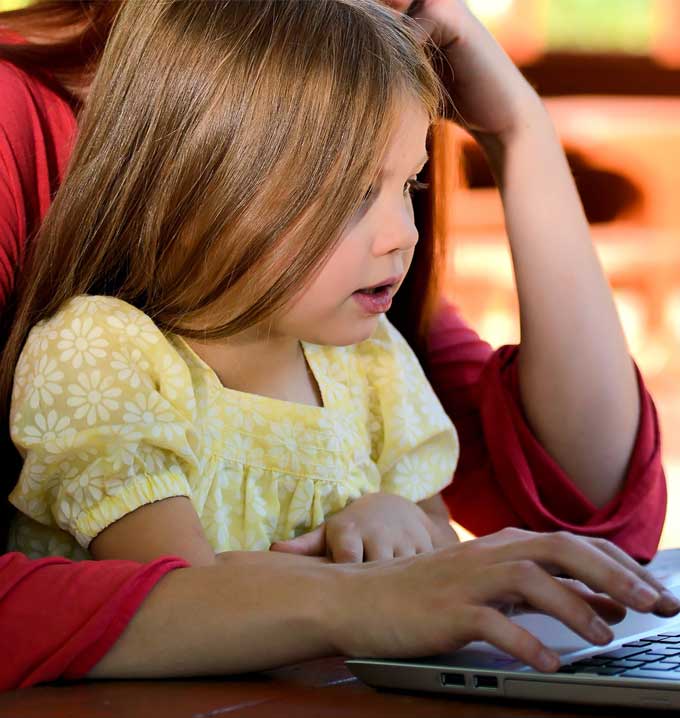6 Questions Parents of a Child with Autism May Have
Here are a few common questions that parents may have about autism. These questions and answers can help you with your autistic child.

6 Questions and Answers for Parents of an Autistic Child
Hey there, parents! Do you have a range of questions about your child’s recent autism diagnosis? You’ve probably been searching far and wide for the necessary answers. Well, this article is a go-to guide with six questions many parents of autistic children may have. Consider this information as autism parent support, where all the knowledge is provided to you.
1. How can I ease medical appointments for my child with autism?
There are several things parents can do to make these necessary visits as easy as possible. Simple things such as buying play stethoscopes or creating picture books can go a long way. If you own an iPad or iPhone, you guessed it: “There’s an app for that,” it is called iPrompts, a visual program for autistic people.
Walk your child through what is going to happen at the visit so they understand what to expect before getting there. The same is true for dental visits. It may take multiple visits before your child will actually sit in the dentist’s chair, but you can help them get comfortable enough to tolerate most of these visits. You can also talk to your child’s doctor or dentist about extending the time of visits so you child can adjust to the setting and people.
2. How can I tell when something is hurting my child when they’re nonverbal?
According to Rebecca Landa, the director of the Center for Autism and Related Disorders at the Kennedy Krieger Institute located in Baltimore, “We know that autism is a multisystem disorder. When it’s not evident that there’s a certain body system not working as it should, we have to look to other indicators. Any time there’s an alteration in a child’s behavioral pattern, this could tell us something we need to be paying attention to medically.” This is why it’s important to know if your doctor works with other autistic patients. In the case of nonverbal autism symptoms, doctors can adopt a personalized and holistic approach to ensure the child’s comfort during these visits.
3. With so many support groups out there, how do I know which one to join?
Autism resources for parents are definitely available. Your doctor should at least know of a few nearby support groups to recommend. The key to joining a support group of any type is to make sure you are joining a group of people who have accepted the issue (in this case, the diagnosis of autism) and are making an effort to move forward. The goal of a support group is to do just that: offer support and different perspectives on how to handle issues as they happen. You want to be able to get insight from parents who have been where you are so that they can offer tips on how to get through the phase you are in. Autism tools for parents can ensure you are equipped with the necessary information and know the correct places to seek guidance.
Support groups and support networks are important. Your doctor should be able to offer you a list of local support groups.
4. How can I learn all I can about autism to help my child, and what are some trusted sources?
While it’s impossible for any individual to know about all the content on the internet or have a list of every reliable source out there, there are a few credible sources your doctor should be able to direct you to. These reliable sources will undoubtedly lead you to other trusted sites. Programs such as virtual training for parents can ultimately guide you to reputable people and institutions.
The most reliable websites are those that are government sites or educational sites. For example, PubMed Health and Autism Society are credible sites that offer resources to parents and people with autism.
5. How can I keep everyone involved in my child’s care on the same page?
Communication and collaboration is essential because it is a team effort when it comes to making sure that the therapists, doctors, and educators are all working together. Some websites allow parents to set up an account and have the doctors, therapists, teachers, and caregivers all log on to talk about the child. You can also keep a journal. You can ask one of the persons involved to be the “case manager,” but make sure you choose someone who understands your child’s condition and treatment plan and is respected by the other people on the “team.” Most professionals have their own ethical obligations, depending on their specific speciality area, that require them to collaborate with other clinicians who work with the same child.
6. How do I help my other children understand their autistic sibling?
Your doctor should encourage you to have your child’s siblings participate in the therapy sessions if appropriate, or atleast understand the types of therapy their sibling is in and what they are working on. Sometimes, resentment or anger can build because other children do not understand the behavior of autism in siblings. One way that you can help all of your children is to seek out therapy that involves all of your kids. It is important to include your other children, but not force them to participate. Taking the time to explain autism to their siblings will help your other children understand that their siblings’ differences are a natural part of their personality. It will help promote acceptance and lessen confusion. Your autistic child will also be able to learn appropriate social cues through the example of their siblings, and it helps your other children feel as though they are a part of the child’s care.
Lighthouse Autism Center
When it comes to autism and parenting, Lighthouse Autism Center provides the highest quality ABA therapy services to ensure your child gets the best possible care. Find out about the Lighthouse Fusion ABA Therapy and more to help your child.
Together, we can unlock your child’s potential
Related News

06/11/2025
Overcoming Stereotypes
Autism stereotypes are common and can have significant social consequences for autistic children. Misconceptions hinder the acceptance and inclusion of autistic children. Challenging these stereotypes is vital for creating a more understanding and supportive society. Challenging Common Autism Stereotypes When people hear the word “autism,” they often imagine a narrow set of images, like the […]

06/11/2025
What’s Next After ABA Therapy?
There are a number of reasons why an autistic child might stop ABA therapy, and one is that they have reached their goals. In this article, we take a look at what parents can expect going forward. What Are the Next Steps After ABA Therapy? As a parent, you only want what’s best for your […]

06/11/2025
Do Babies with Autism Smile?
We take a look at the importance of early intervention, some of the milestones for parents to look out for, and the more common signs of autism in babies. Do Babies with Autism Smile? Watching your baby grow is an exciting time, certainly one of life’s quiet wonders. From those first sleepy stretches to the […]


